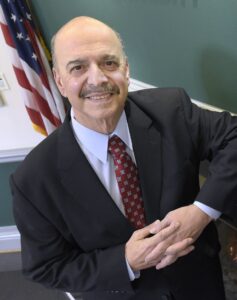The headlines warn us that Medicare is near financial distress, with Part A funds (which pay for hospitals and nursing homes) being depleted by 2026. Others predict benefit reductions starting in 2028. So far, the “fixes” are focused on a series of financial manipulations, which could lead to poorer patient coverage, reduced eligibility status, and higher taxes. But an effective clinical step can be taken based on individual empowerment and choice: promoting the completion of advance directives.
Advance directives are free, legal forms recognized in every state for over 30 years that allow individuals to specify the kind of care they want to receive when their end is near. Of Medicare’s $850 billion annual budget, about $250-300 billion is spent on the last six months of life. However, estimates are that only about half the Medicare population has completed advance directive forms, and the rate is lower among Communities of Color. Overall, the completion rate across the US adult population is about 35%. It’s puzzling – given that our culture celebrates personal freedom and autonomy – that we collectively don’t take advantage of this straightforward way to exert our preferences.
As an ER doctor, I’ve seen too many patients whose end-of-life care wishes were not known. Not only did this lead to full resuscitation efforts and other treatments that perhaps only extended life for a few hours or days, but family members were faced with difficult – and sometimes conflicting – decisions that could have been avoided.
We all want the best that modern medicine has to offer. But we also know that there can come a time when further “care” becomes ineffective, unwanted, and often painful. Most of us want some version of a “Queen Elizabeth” death: comfortable at home, pain-free, surrounded by loved ones. Because most people choose not to undergo heroic treatment for every conceivable condition, fewer deaths would occur in intensive care units and hospitals, and more would happen in hospice facilities or at home. And for those who opt for more heroic treatments, their choices would be honored as well.
What if 95% of Medicare recipients completed advance directives and these were available to be applied by clinicians? That could lead to reductions of 20% (a conservative estimate) of that $250-$300 billion. Savings of $50-$60 billion would then be achieved not by restricting care options but by expanding them and respecting individual citizens’ personal choices.
This was proven in La Crosse, Wisconsin. That region committed to raising the completion rate of advance directives from the national average of about 35% to over 95%. This effort was coordinated by citizen activists working with their health, legal, faith, and business communities, and it worked. As a result, La Crosse’s healthcare costs are among the nation’s lowest.
Additionally, Americans should take greater and earlier advantage of palliative and hospice care. These services support patients and families while reducing healthcare expenditures.
Yes, this does involve thinking and talking about death and dying, something we collectively avoid. But we are empowered as the first generation in human history that likely has some say about how, when, and where we die. I believe every adult should complete an advance directive as a basic responsibility and update it periodically as our lives change.
But for now, Baby Boom generation: I’m talking to you. Let’s show the way, do this, and spare future generations the unnecessary burdens of taking care of us.
Respecting individual rights is a smart and sensitive way to reduce healthcare costs, and perhaps this is one area where our political establishment can find common ground. With National Healthcare Decisions Day coming every April 16, President and Mrs. Biden and other leaders could demonstrate their commitment by publicly signing their advance directives in a White House ceremony.
________________________________________________________________________________________________________________________

Dan Morhaim, M.D.
Dan Morhaim, M.D. brings a unique perspective: Emergency Medicine physician, 24-year state legislator, academic, consultant. His recent book is “Preparing for a Better End” (Hopkins Press) with information at www.thebetterend.com.






